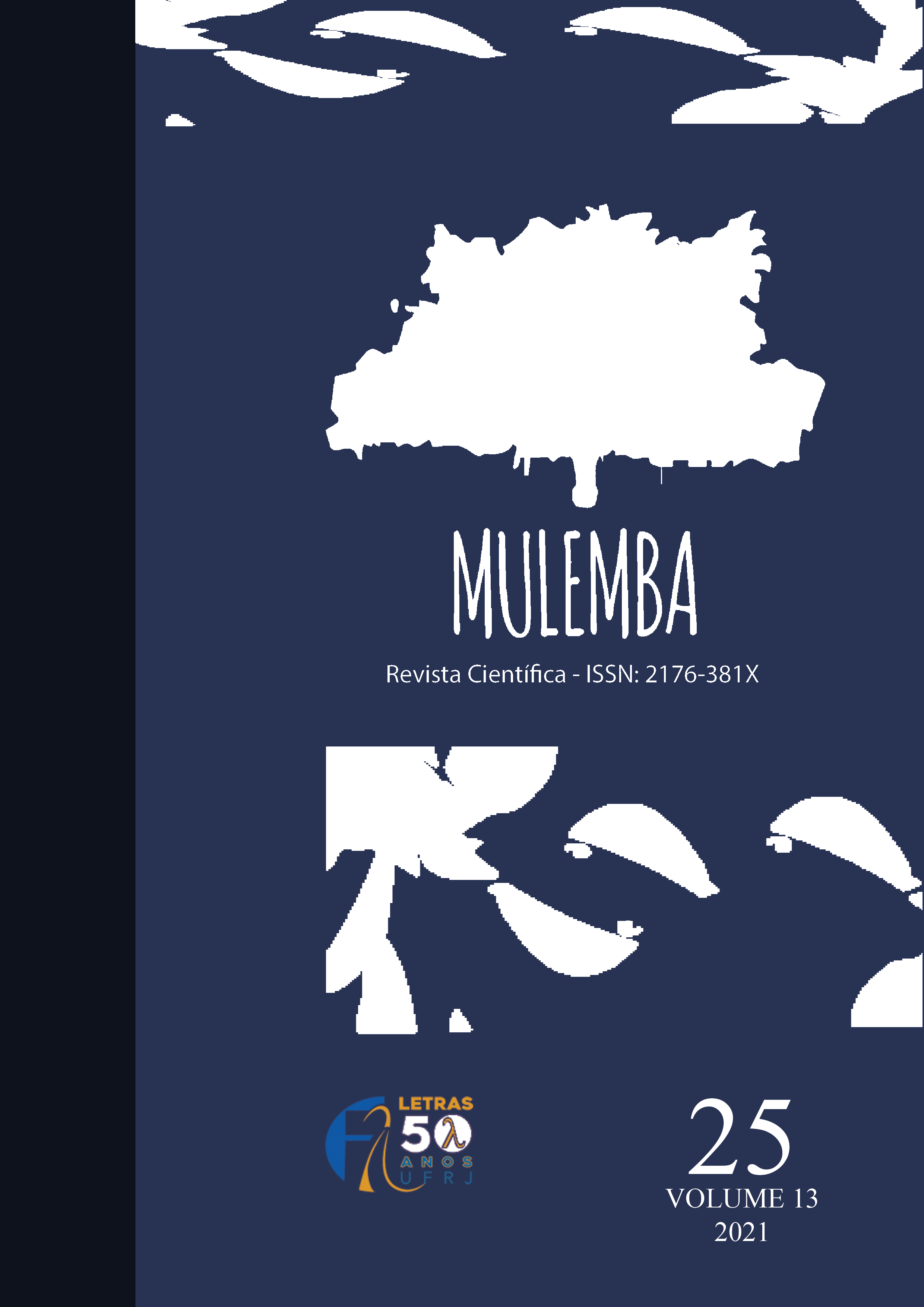A invenção de uma nova linguagem no romance a <i>Casa Velha das Margens</i>
DOI:
https://doi.org/10.35520/mulemba.2021.v13n25a51457Abstract
Este artigo propõe uma leitura do romance A casa velha das margens, do escritor angolano Arnaldo Santos, a fim de observar o modo como a linguagem é trabalhada, tendo como aportes teóricos principais as obras de Frantz Fanon e Albert Memmi. As estratégias linguísticas empregadas pelo autor e a própria narrativa colocam em cena as relações entre língua e poder. No contexto das literaturas africanas, tais estratégias significam um desafio ao discurso colonial e, consequentemente, ao sistema colonial opressor. A narrativa se passa no século XIX e o romance se baseia na relação entre a linguagem oral e a linguagem escrita para mostrar que houve resistência das populações locais e que essas vozes precisam ser ouvidas ainda hoje.Downloads
References
FANON, Frantz. Peles negras, máscaras brancas. Salvador: EDUFBA, 2008.
HAMILTON, Russell. “A literatura dos PALOP e a teoria pós-colonial”. Revista Via Atlântica, n. 3, p. 12-23. dez. 1999. DOI: https://doi.org/10.11606/va.v0i3.48809
JACOB, Sheila Ribeiro. De mucandas e sûnguis, um texto de resistência: uma leitura do romance A casa velha das margens, de Arnaldo Santos. Dissertação de mestrado, Universidade Federal Fluminense (UFF), 2012.
LABAN, Michel. “Ambaquista e literatura. União dos Escritores Angolanos.” (s/d). Disponível em: <http://www.ueangola.com/criticas-e-ensaios/item/146-ambaquista-e-literatura>. Acesso em: 15 de julho de 2021.
MEMMI, Albert. Retrato do colonizado precedido de Retrato do colonizador. Rio de Janeiro: Civilização Brasileira, 2007.
SANTOS, Arnaldo. A casa velha das margens. Vila Nova de Famalicão: Húmus, 2010.
Downloads
Published
Issue
Section
License
Authors who publish with this journal agree to the following terms:
- Authors retain copyright and grant the journal right of first publication with the work simultaneously licensed under a Creative Commons Attribution License that allows others to share the work with an acknowledgement of the work's authorship and initial publication in this journal.
- Authors are able to enter into separate, additional contractual arrangements for the non-exclusive distribution of the journal's published version of the work (e.g., post it to an institutional repository or publish it in a book), with an acknowledgement of its initial publication in this journal.
- Authors are permitted and encouraged to post their work online (e.g., in institutional repositories or on their website) prior to and during the submission process, as it can lead to productive exchanges, as well as earlier and greater citation of published work (See The Effect of Open Access).

